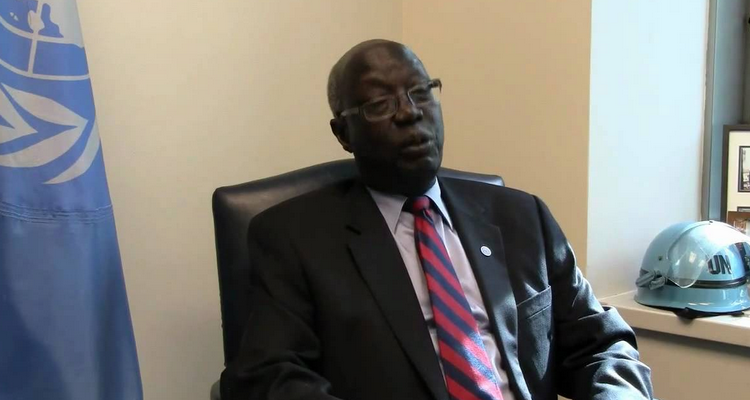
Commenting on my recent post on whether R2P was a Western idea, Simon Adams, Director of the Global Centre for the Responsibility to Protect, asked “who will write (….) on R2P’s African origins?” This is an intriguing question, given that Francis Deng, a South Sudanese Diplomat and former Special Advisor for the Prevention of Genocide to the UN Secretary General, is one of the intellectual pioneers of R2P, and one of the promoters of the notion of ‘sovereignty as responsibility’. In addition, ECOWAS, the Economic Community of West African States, has been a global leader in embracing and operationalizing R2P.
Despite this, R2P is routinely seen as a Western concept by many analysts from both the Global North and the Global South. Western commentators frequently point to ‘revisionist’ and ‘irresponsible’ non-Western powers unwilling to share the global burden and truly support R2P. Politicians in the Global South – such as Brazil’s former Foreign Minister and current Minister of Defense- often referred to R2P as an imperialist Western plot (as do some Western thinkers such as Noam Chomsky). Given R2P’s partly African origins and the fact that all governments – including the BRICS – committed to R2P at the UN World Summit in 2005, thus clearly making it a global concept, this may come at a surprise.
There are several reasons why the West seems to ‘own’ R2P. First of all, the academic debate about the Responsibility to Protect is fundamentally a Western one, and scholars like Francis Deng and Rames Thakur are exceptions. The majority of leading thinkers on the topic – Gareth Evans, Alex Bellamy, Jennifer Welsh, Edward Luck, Michael Ignatieff, and so on – are all from the so-called ‘Global North’ (although this phenomenon is not limited to R2P but to International Relations more generally).
In a recent article, Thomas Weiss and Rama Mani state that
Western scholars have produced most of the seminal work that has infl uenced
the development of R2P – in confl ict prevention, crisis management, peace-building, human rights, and international humanitarian law. In parallel, the voluminous refl ections and publications by scholars across the global South are unavailable even in world-class, research-university libraries in North America and Europe; they are inaccessible to policy makers in the North and in the South.
When Brazil seemed to make an intellectual contribution to the debate in the form of the ‘Responsibility while Protecting’ (a project Brasília has practically abandoned since lauching it a year ago), analysts sensed an opportunity to ‘globalize’ the debate about R2P and quickly rushed to Brazil – a sign of how easy it would be for a non-established power to assume thought leadership in this field.
Secondly, R2P is often misunderstood as being all about humanitarian intervention as seen in Libya, an area clearly dominated by the West. Yet of the concept’s three pillars, only the third is partially about intervention, and the rest is about the far more important aspect of prevention. Prevention gets far less media coverage than intervention, so India’s, Nigeria’s China’s and Brazil’s (significant) peacekeeping efforts over the past years – fully aligned with R2P - have probably generated fewer media reports than NATO’s military intervention in Libya. As a consequence, the BRICS are often wrongly seen as unsupportive of R2P.
Finally, emerging powers may prefer to depict R2P as a foreign concept they reluctantly agreed to, as this may increase their room for political maneuver to occasionally distance themselves from the idea if they believe it has been misinterpreted, as was the case in 2011 in Libya. This is particularly important since the operational capacity to actually intervene if necessary is distributed unevenly. Even if emerging powers fully support an intervention, implementation will inevitably lie with the United States, making it impossible for emerging powers to affect the details of the operation.
None of these aspects is likely to change anytime soon – R2P is a genuinely global idea, yet unfortunately its most visible part (military intervention if all other means have failed) will still be carried out by the United States alone, thus inevitably turning it, to many, into a Western project, obscuring its non-Western elements.
Read also:
Dilma’s chance to promote RwP in the UN General Assembly
Photo credit: Paulo Filgueiras/UN Photo








